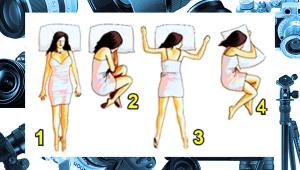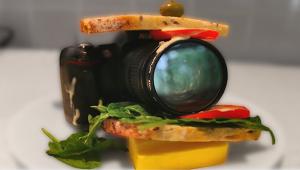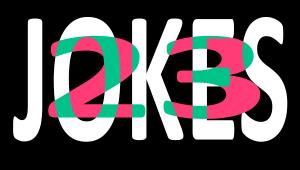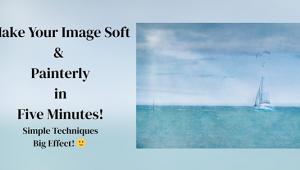Reflections on PhotoPlus Expo – A Personal Journey

Last week New York City played host to the annual PhotoPlus Expo event. More than just a consumer shopping show, PPE shines because the sponsors do a terrific job of assembling useful seminars, knowledgeable speakers, photo walks and more. Thousands of photo enthusiasts converge on Jacobs Javits Center to mix with hundreds of professional photographers, photo manufacturer employees and a few journalists.
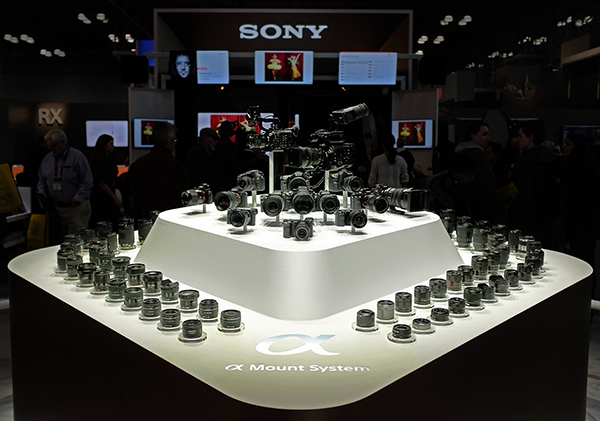
The venue is unarguably the most photogenic place on the planet—Manhattan. That’s reason enough to go. And it’s the best opportunity to meet up with longtime friends who see each other less often with each passing season. If you need a third reason to go, the exhibition center is just a short ferry ride across the Hudson from New Jersey. Okay, two out of three ain’t bad. (I say this lovingly and with permission because I live in the Garden State.)
And since I have been in the photo industry for about 150 years now, I look at photo shows through the prism of accumulated experiences and emotions that make me happy that this pleasurable event happens only once a year.
If you’re expecting an equipment roundup here, time to bail. Instead of filling this week’s column with specifications and features, I’m going to share with you a couple of the best things I’ve ever seen at a photo show—ever in my life.

Leon and the Lens Cap
Back in the ‘80s, an organization ambitiously named the International Photo Optical Show Association (IPOSA for short) sponsored a series of annual consumer camera shows across the country. The Chicago extravaganza was in November, just before Thanksgiving, and the show hours were brutal, something like 4pm until 10pm on Thursday and Friday, and then all day Saturday and Sunday. I paint this insalubrious picture to partially justify the behavior of my friend and coworker.
My colleague—let’s call him Leon for the sake of anonymity—and I dutifully worked every minute of every hour of the show, including setup and teardown. By the end we were beyond exhausted—physically and mentally sapped. I get goofy when I’m tired, and so did Leon. And since he was only a few feet short of punchy even on normal days, under fatigue he was downright dangerous.
Around closing time on Sunday a young couple appeared at our booth. They were unremarkable except for their despicable cheerfulness and the yellow plastic Nikon bag on the wife’s arm—it was stuffed with dozens of camera brochures of all sorts and sizes. They were clearly tire kickers. If you’ve ever worked retail, that designation requires no explanation.
Leon had just finished a rant about something or other, and was already several milligrams of caffeine over the line. I suspected he was ready to erupt any moment, considering the coffee and cigarettes he had consumed during the preceding eleven hours. The husband addressed Leon before I had a chance to intercept him.
“We’d like to see something simple,” the young man asked, smiling like a schoolboy. His wife, who doubtlessly had a syrupy pet name like Bunny or Dumpling, clung to his arm and smiled broadly.
Leon didn’t hesitate for an instant. He slid the door of the glass showcase open and fished a plastic lens cap off the storage shelf underneath. He flopped the lens cap on the counter like a poker player folding a pair of deuces.
“Here,” he bellowed. “This is pretty %$#k-ing simple.”
Stand Back: Silica Gel
Personally, I never misbehaved quite so overtly; I generally tried to slip an outlandish fib into a boringly long exhibition of sincerity; a lie so outrageous that no normal person would believe it. What do they call it? Oh yeah—like a White House press conference.
I was working a demo at some forgotten store in some forgotten city—I worked 40 weekend demos every year so, yes, they mostly blurred together shapelessly—and a very nice lady purchased an SLR as a result of my narrowly adequate presentation. She was a beginner and had a million questions. I was trained to be a teacher and genuinely loved explaining things to people, occasionally even against their will.
Back in the day, when a customer purchased a camera from a manufacturer’s rep, the rep unpacked the merchandise and put everything together, including the neck strap, and sometimes even loaded the first roll of film. This sale was no different, except that the customer inquired about each item as it came out of the box.
For each “What’s that?” that she asked, I had an answer ready. This is the body cap, I explained. This is the little piece of plastic that covers the baseplate. The battery goes in here. And so forth.
Finally we got to the absorbent Silica Gel packet, the last item in the box. “What’s that for?” she asked.
“You see,” I started—but before the truth could get out of my mouth, the devil on my shoulder noticed the customer’s doelike, gullible eyes and whispered into my ear. And I caved.
“You see, cameras are shipped to the US by sea,” said I. “Every camera has one of these tiny Flotation Devices packed inside, just in case the ship sinks. When this packet gets wet it expands 1000 times its size and the camera floats to the surface.”
She nodded, wide-eyed and fascinated.
“It makes salvage recovery much easier,” I added earnestly.
“So, you mean…” she began.
“Yes,” I interrupted. “If you take this home and throw it into a bathtub full of water, it will turn into life raft.”
She nodded eagerly, mouth open and eyes even wider.
“But don’t put it in the sink or toilet,” I warned, “It needs plenty of room to spread out.”
“I’ll do it tonight,” she said eagerly. “When my husband gets home. He’s going to be so amazed.”
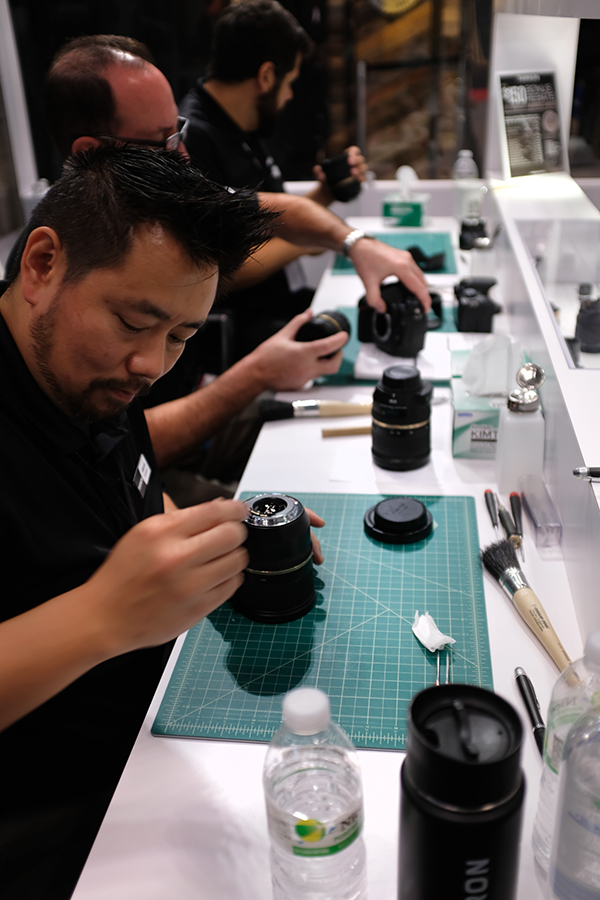
The Farmer
Dressed in his tweed sports jacket—complete with suede-covered elbows and a pipe full of stringy unburned tobacco peeking out of the handkerchief pocket—he looked more like a college professor than a tech rep. Bob (not his real name) spoke like a academician, too. In many ways he reminded me of an aging Samuel Clemens, right down to the unkempt frizzy hair.
Bob and I, along with reps from a few other companies, were conducting a demo at a store that bordered on farmland southwest of Chicago. The manager of the store was a wimp of a man, best known for the speed at which he could take credit for things other people did. He was also an ace at avoiding blame for his own mistakes.
Full of himself as per usual, the manager was instructing Bob how to handle a wealthy customer who was driving up from his farm south of Joliet specifically to see Bob. The customer was a pork producer who owned hundreds of acres of hog sheds and thousands of Berkshire swine. He also owned several cameras and lenses—all of them were the brand Bob represented. The customer was a big spender who already owned several thousand dollars worth of camera equipment, the manager said. He was headed to the demo to meet Bob and buy even more photo gear.
“The man is a pig farmer,” the manager explained. “And he’s a little sensitive about it. He wears bib top dungarees and plaid work shirts. But he’s got money out the ying-yang and spends like a drunken pirate.”
Bob listened intently, nodding obediently.
“Whatever you do,” the manager stressed, “Don’t ask him about farming, his farm or anything to do with farm animals. You got that?”
Bob nodded and straightened the cameras and lenses in his display case.
The rest of the afternoon was busy, and most of us forgot all about the stern lecture the store manager had given Bob. Didn’t pertain to us, anyway. But the manager went back to Bob at least four more times and reminded him how to handle this high-roller customer with extra special care.
The manager reminded Bob just before he left for dinner. He reminded Bob again when he returned. Bob stoically nodded each time, but the last time he grunted beneath his breath, “The little man must think I’m an absolute imbecile.”
About an hour before the demo ended, a man wearing polished western boots, sharply pressed denim overalls and a red plaid shirt entered the store and proceeded directly to Bob’s space.
Bob was talking to another customer, both hands on the counter and his head held high and firm. As the farmer approached, Bob turned his head to one side like a parrot and sniffed the air like Smokey the Bear.
There was a blinding flash—like an electrical transformer crackling in a lightning storm—and we all knew Bob had the stage. He turned his head again and this time looked directly at me and spoke.
“I smell pigs!” Bob snorted. “I smell pigs.”
These stories are true. The names have been changed to protect the innocent as well as the not so innocent. If I’ve made any embellishments at all, it’s because—contrary to popular belief—hindsight is not 20/20.
—Jon Sienkiewicz





